Performance as Method from Global Perspective: Historical Memory, Technologies of the Self and Cultural Production
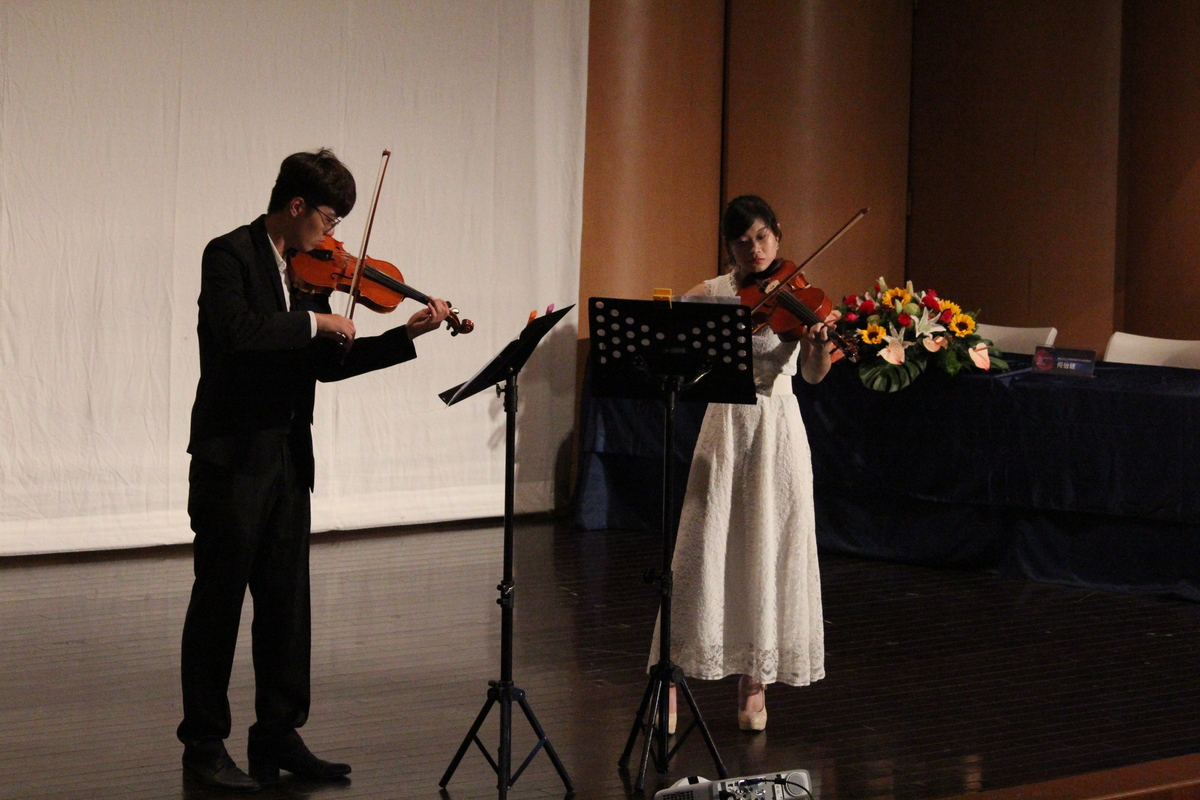
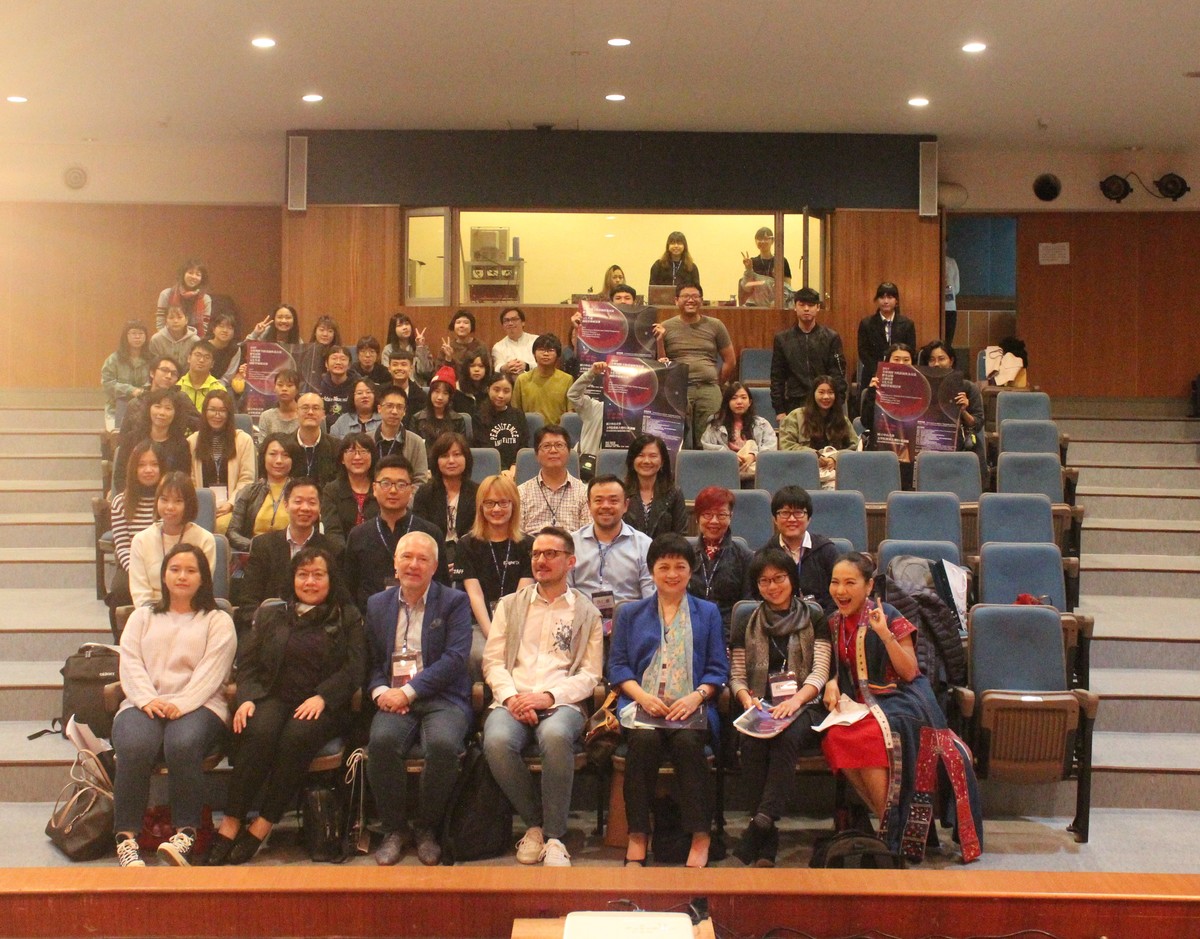
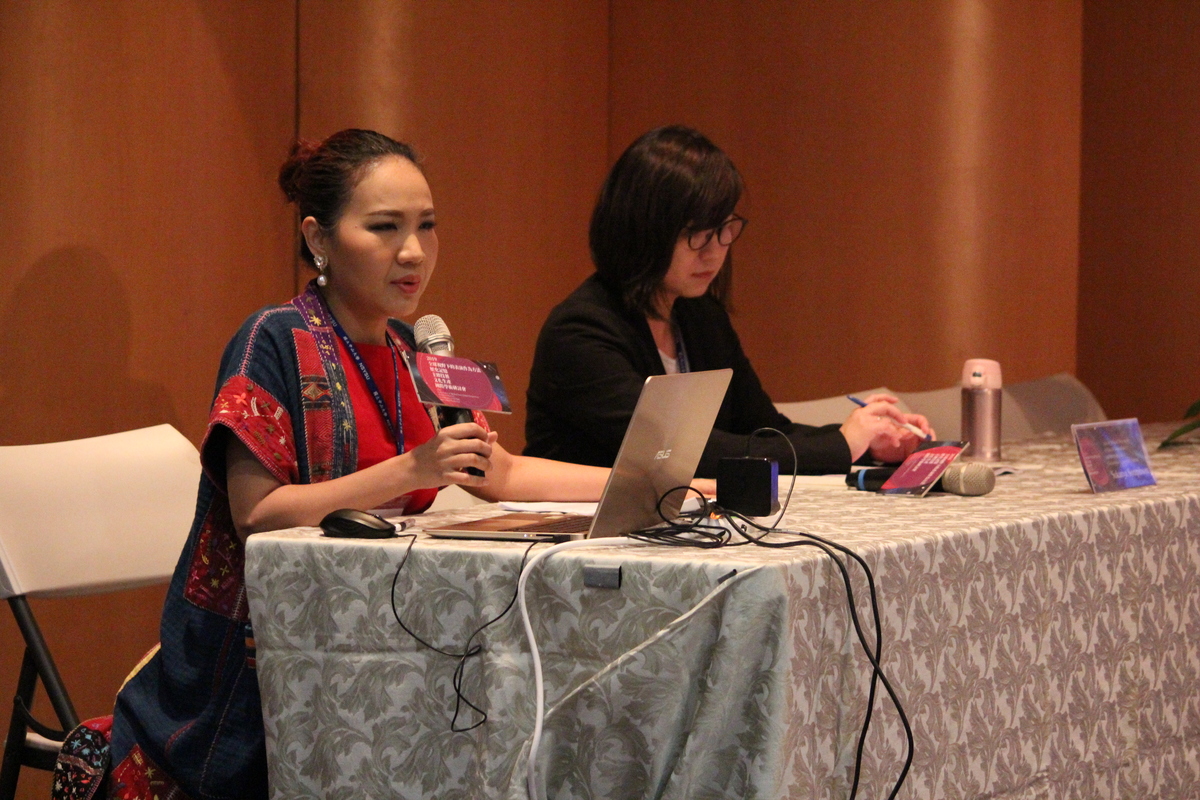
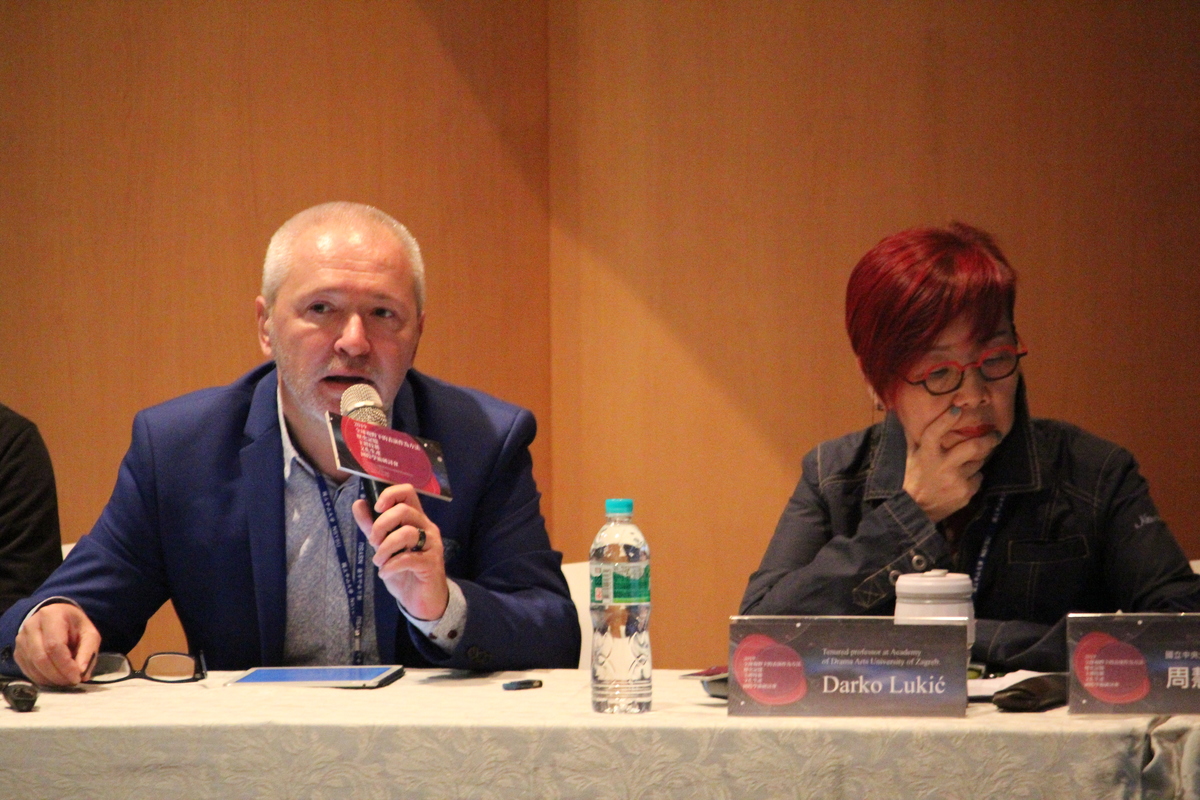
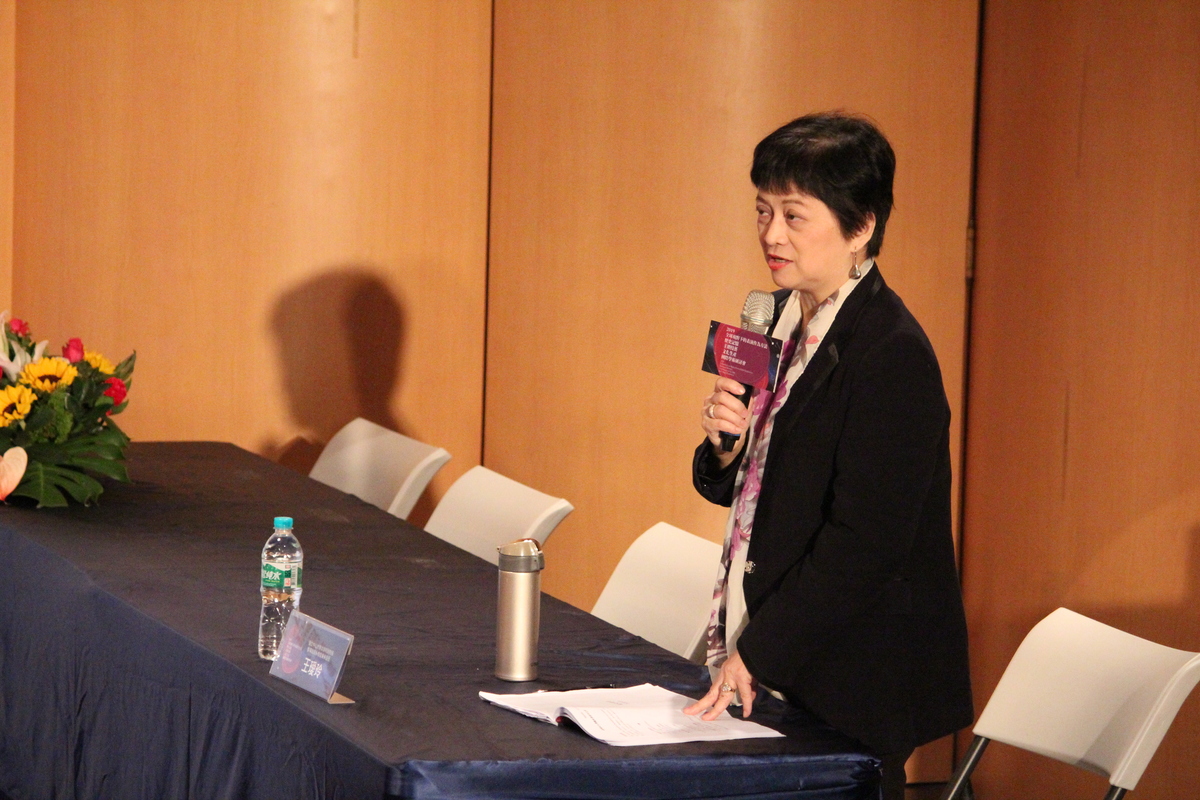
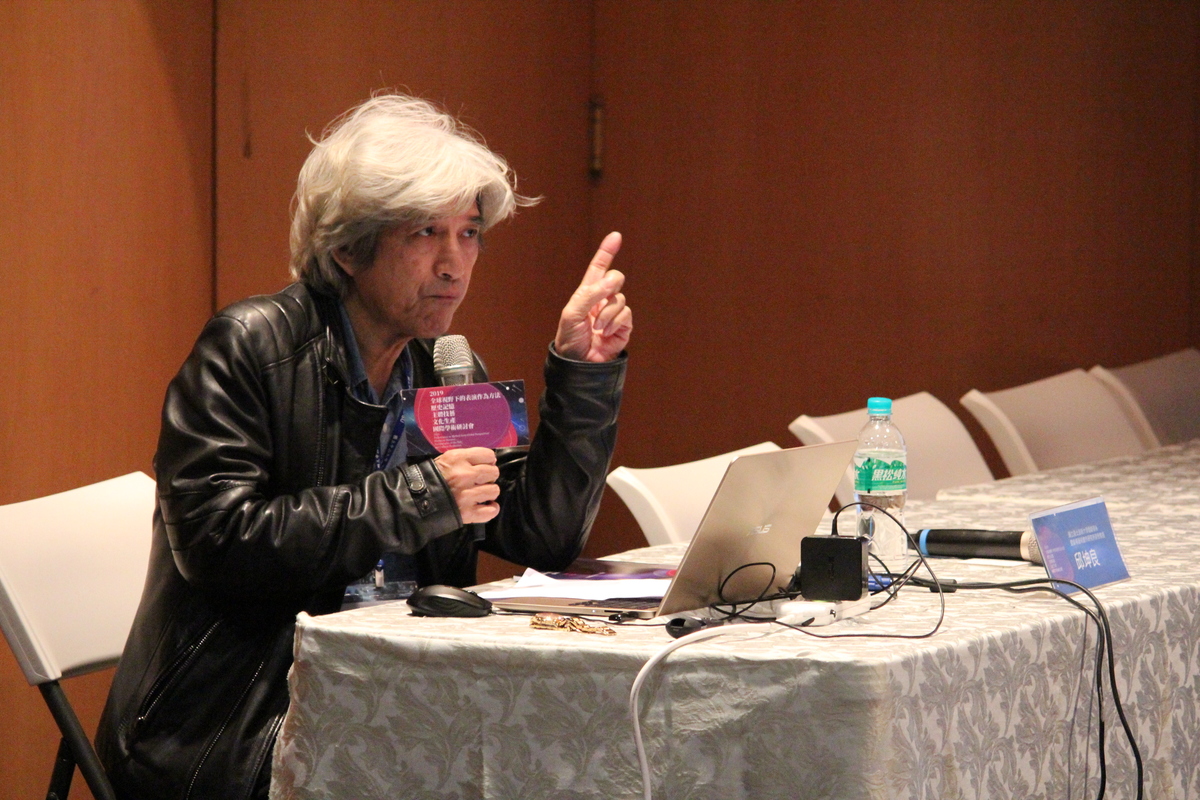
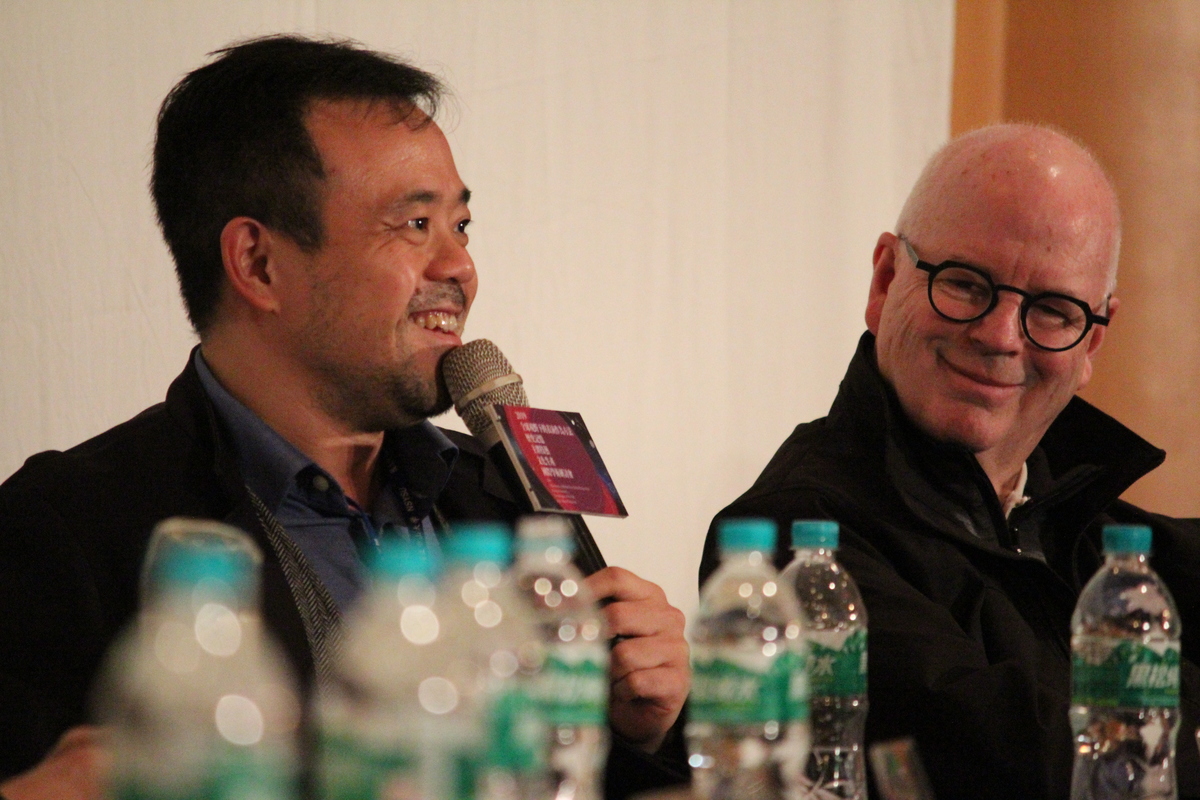
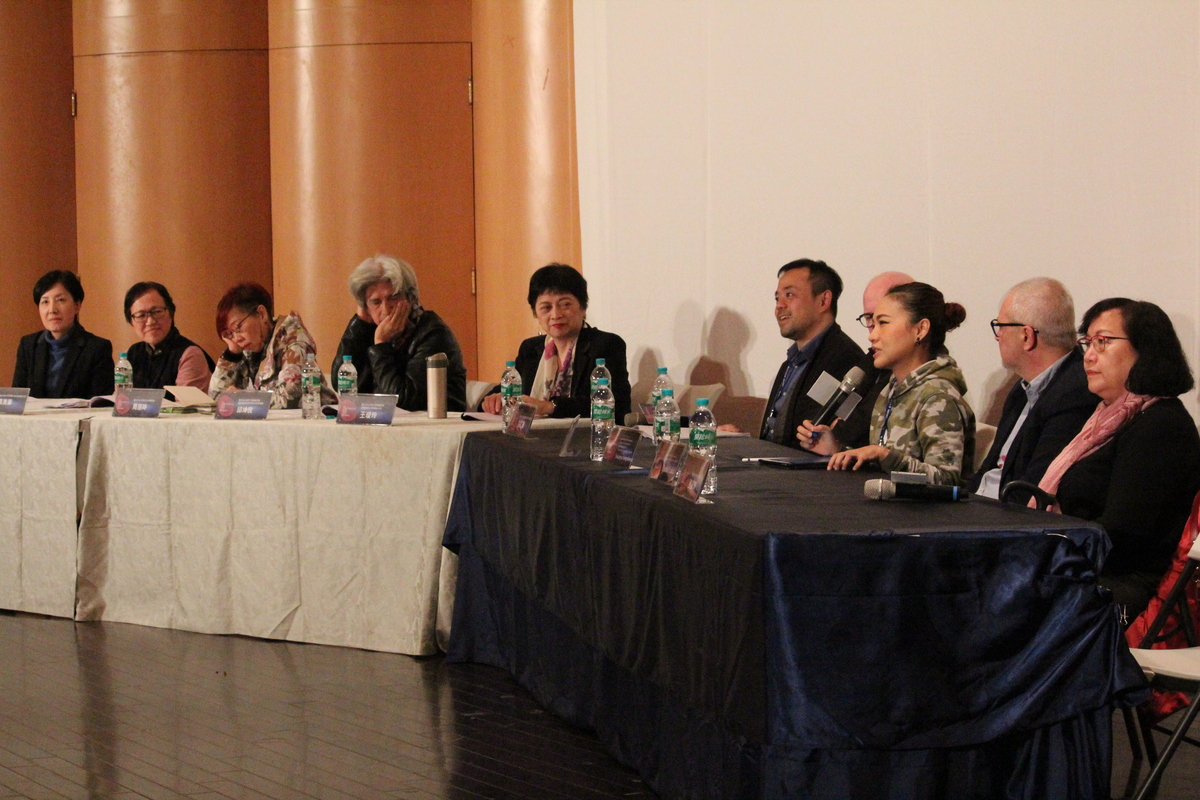
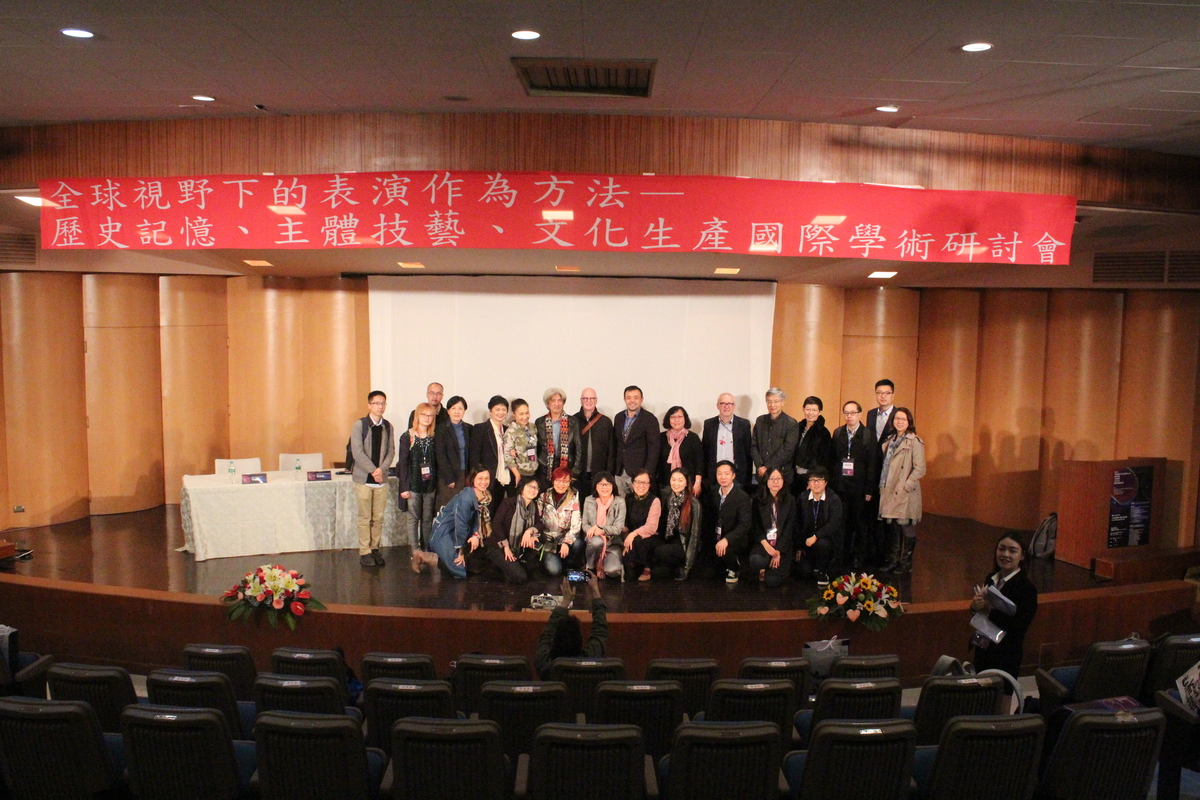
For two days, December 5 to 6, 2019, the Art Building of NSYSU hosted an international conference – Performance as Method from Global Perspective: Historical Memory, Technologies of the Self and Cultural Production, organized by the Department of Theater Arts, NSYSU. Performance destabilizes the boundaries of disciplines, questions the regimes of truth and subverts the hierarchies of cultural values, quickly responding to recent events, trends, political and societal issues, and is a method for critical inquiries. The conference was a perfect opportunity to discuss this form of art from a broader perspective; over 30 Taiwanese and international scholars presented their papers, touching upon a wide range of aspects and presenting outstanding performing artists from different parts of the world.
The conference was a great opportunity to discuss the present condition of performing arts. One of the two keynote speeches of the conference was delivered by Professor Timothy Murray from Cornell University – one of the former mentors of Walter Hsu, Assistant Professor of the Department of Theatre Arts at NSYSU and also the Executive Officer of this conference. Invited by Mr Hsu, Professor Murray, in his keynote speech, discussed the works of avant-garde Chinese and Taiwanese performance artists and reflected on the increasing normativity of performance art, which he sees as one of the many forms of the interdisciplinary field of theatrical arts. He said that performance and theatre arts are now facing the threat of the enclosure “in the univocal quantifications of accountability, profit and economic return”.
The audience was thrilled with another highlight presentation and the personality of singer, actress, director and playwright from Thailand, Sukanya Sompiboon, who is an Assistant Professor at Chulalongkorn University in Bangkok. She engages in the self-syncretic production of likay –a traditional form of theatre in Thailand, to which she carefully adds a political undertone (as “politics is sometimes sensitive in Thailand”), contemporary motifs and improvisation, even letting the audience interrupt the performance.
Speakers of the conference proved that theatre can be a great tool to challenge mainstream historical narratives. Tenured Professor at the University of Zagreb Darko Lukić presented the politically-engaged works of his ex-student Oliver Frljic, who fights “memory wars”, using the theatre as a tool to deconstruct the dominant collective nationalist mythologies in post-conflict societies of Eastern Europe, which “cause polemics and aggressive reactions” and even interruption of his performances by radical groups inspired by nationalist media, politicians and religious organizations.
As presented by the study by Professor Wen-Ling Lin from National University of Tainan, theatre in Taiwan in the post-martial law era has also been part of the taiwanization movement becoming a tool to challenge the historical narrative imposed by Kuomintang, bringing new historical revisions to the surface and digging in the history of Taiwan even as far as the 17th century. Professor Lin discussed the different approaches of the Papora aboriginal group to the Dutch colonialists, and further problematized the issues of nativist reconstructions of history as the question of authenticity in representations of the Taiwanese aboriginal population indicated in her analysis.
Distinguished Professor Hui-Ling Chou from National Central University, Taiwan, analyzed the impact of international art festivals on the art scene in Asian countries from the 1970s, upon the end of the post-cold war. She identified trends such as the creation of ‘global aesthetics’ and self-orientalization – popularization of traditional Chinese performative arts in Europe and interculturalism – Chinese opera’s adaptations of Shakespeare’s plays make a great example.
Another highlight this year was the keynote speech on the history of the Taiwanese theatre by Professor Kun-Liang Chiu, former Minister of Council of Cultural Affairs of the Republic of China and former President of the Taipei National University of the Arts.
Two speakers – doctoral student Xianliang Dong from the Department of Chinese and History of the City University of Hong Kong and Associate Professor Wan-I Yang from the Institute of Philosophy of NSYSU analyzed the ideas of Antonin Artaud – one of the most influential figures in the history of theatre. Speeches at the conference touched upon a broad range of topics, such as gender, stage design, theatre performance in contemporary China, traditional theatre forms such the performativity of kunju, standpoints and images of the American nation in the 21st-century repertoire in the USA and many other topics.
The conference was closed with the final remarks of the speakers. Assistant Professor Sukanya Sompiboon admitted, that although she couldn’t understand Chinese, she managed to take a lot of notes and noticed “the potential of studying theatre arts in here (NSYSU)”. Vice Chair of the College of Liberal Arts and Chairperson of this conference Professor Ayling Wang invited scholars and speakers to submit papers, which will later be revised and compiled into a monograph. She also invited the participants to see the play “Antigone the Unbrave” performed by the students of the Department of Theatre Arts on December 13th to 15th in Pier-2 Art Center in Kaohsiung. Tickets available here: https://bit.ly/341qBBK
(Photos provided by student of the Department of Theatre Arts Ching-En Liu)
The conference was a great opportunity to discuss the present condition of performing arts. One of the two keynote speeches of the conference was delivered by Professor Timothy Murray from Cornell University – one of the former mentors of Walter Hsu, Assistant Professor of the Department of Theatre Arts at NSYSU and also the Executive Officer of this conference. Invited by Mr Hsu, Professor Murray, in his keynote speech, discussed the works of avant-garde Chinese and Taiwanese performance artists and reflected on the increasing normativity of performance art, which he sees as one of the many forms of the interdisciplinary field of theatrical arts. He said that performance and theatre arts are now facing the threat of the enclosure “in the univocal quantifications of accountability, profit and economic return”.
The audience was thrilled with another highlight presentation and the personality of singer, actress, director and playwright from Thailand, Sukanya Sompiboon, who is an Assistant Professor at Chulalongkorn University in Bangkok. She engages in the self-syncretic production of likay –a traditional form of theatre in Thailand, to which she carefully adds a political undertone (as “politics is sometimes sensitive in Thailand”), contemporary motifs and improvisation, even letting the audience interrupt the performance.
Speakers of the conference proved that theatre can be a great tool to challenge mainstream historical narratives. Tenured Professor at the University of Zagreb Darko Lukić presented the politically-engaged works of his ex-student Oliver Frljic, who fights “memory wars”, using the theatre as a tool to deconstruct the dominant collective nationalist mythologies in post-conflict societies of Eastern Europe, which “cause polemics and aggressive reactions” and even interruption of his performances by radical groups inspired by nationalist media, politicians and religious organizations.
As presented by the study by Professor Wen-Ling Lin from National University of Tainan, theatre in Taiwan in the post-martial law era has also been part of the taiwanization movement becoming a tool to challenge the historical narrative imposed by Kuomintang, bringing new historical revisions to the surface and digging in the history of Taiwan even as far as the 17th century. Professor Lin discussed the different approaches of the Papora aboriginal group to the Dutch colonialists, and further problematized the issues of nativist reconstructions of history as the question of authenticity in representations of the Taiwanese aboriginal population indicated in her analysis.
Distinguished Professor Hui-Ling Chou from National Central University, Taiwan, analyzed the impact of international art festivals on the art scene in Asian countries from the 1970s, upon the end of the post-cold war. She identified trends such as the creation of ‘global aesthetics’ and self-orientalization – popularization of traditional Chinese performative arts in Europe and interculturalism – Chinese opera’s adaptations of Shakespeare’s plays make a great example.
Another highlight this year was the keynote speech on the history of the Taiwanese theatre by Professor Kun-Liang Chiu, former Minister of Council of Cultural Affairs of the Republic of China and former President of the Taipei National University of the Arts.
Two speakers – doctoral student Xianliang Dong from the Department of Chinese and History of the City University of Hong Kong and Associate Professor Wan-I Yang from the Institute of Philosophy of NSYSU analyzed the ideas of Antonin Artaud – one of the most influential figures in the history of theatre. Speeches at the conference touched upon a broad range of topics, such as gender, stage design, theatre performance in contemporary China, traditional theatre forms such the performativity of kunju, standpoints and images of the American nation in the 21st-century repertoire in the USA and many other topics.
The conference was closed with the final remarks of the speakers. Assistant Professor Sukanya Sompiboon admitted, that although she couldn’t understand Chinese, she managed to take a lot of notes and noticed “the potential of studying theatre arts in here (NSYSU)”. Vice Chair of the College of Liberal Arts and Chairperson of this conference Professor Ayling Wang invited scholars and speakers to submit papers, which will later be revised and compiled into a monograph. She also invited the participants to see the play “Antigone the Unbrave” performed by the students of the Department of Theatre Arts on December 13th to 15th in Pier-2 Art Center in Kaohsiung. Tickets available here: https://bit.ly/341qBBK
(Photos provided by student of the Department of Theatre Arts Ching-En Liu)
Click Num:
Share
